Mindset, attitude and focus are key elements to being a prepared shooter. I talked with Walther Arms’ women pro-shooters Tatiana Whitlock, Gabby Franco and Michelle Waldran to find out their answers to three questions:
Sponsored by Walther Arms
A crucial starting place is walking onto the range with a great attitude and a task-appropriate mindset. But that’s the easy part! Maintaining and controlling both when you aren’t performing to your optimal is the true challenge.
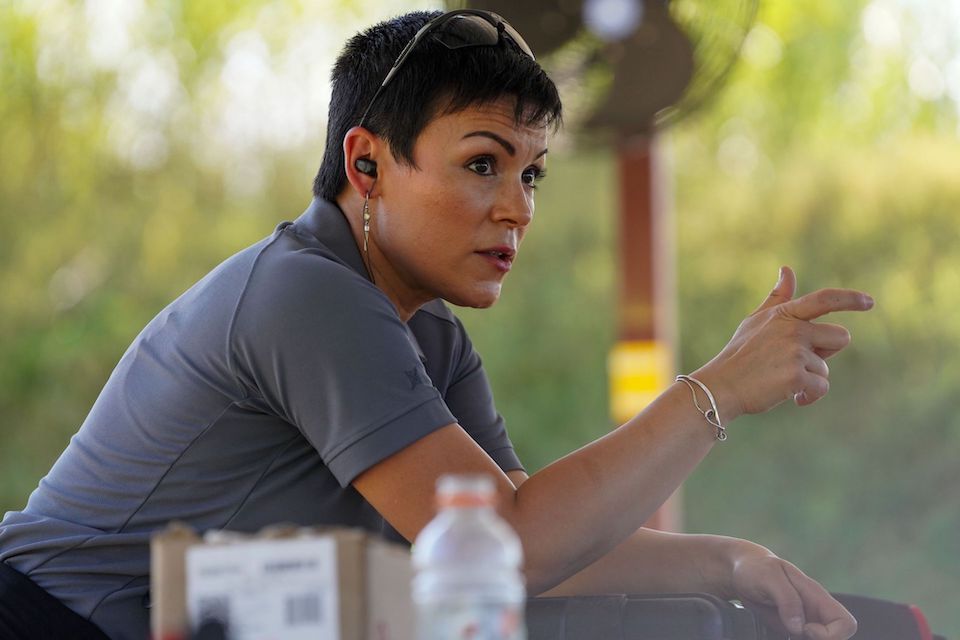
A great quote I often use with my teenagers at home translates beautifully to the range as well: “Don’t let your emotions overpower your intelligence!” I firmly believe that your attitude is the premise for your mindset. When I see myself or a student off track, the first assessment I make is identifying the emotion overpowering them. It is remarkably easier to get back on track once the frustration, elation, confusion, or sometimes just brain-lock is confronted. With the emotion acknowledged, the rational mind has an opportunity to take control, reset as needed, and get back into the correct mindset to perform the next task.
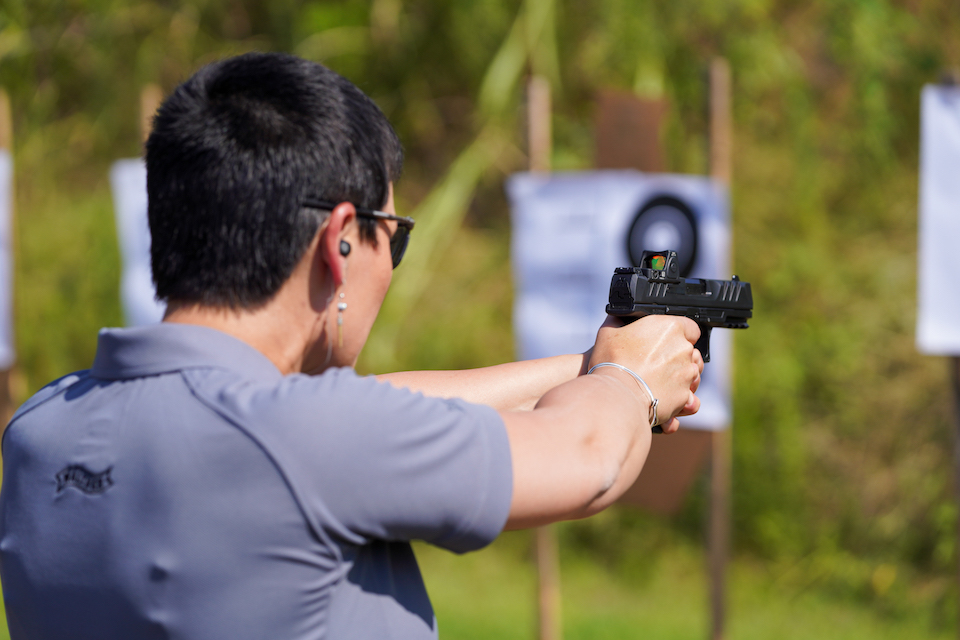
Training comes in several forms, and each drives how I progress as a shooter and an educator. Finding peers and mentors that inspire and challenge you is an absolute must. I never tire of the lengthy phone calls and post-class deep dives with these “big brains.” In addition to dry fire and live fire workouts, I find myself reading everything I can get my hands on related to adult education, technical shooting, survival, combative and brain science.
Perhaps the one area that I enjoy the most is what I learn from doing the work – teaching, coaching and mentoring. It is from observing and finding creative ways to help others overcome the challenge of learning new firearms skills that informs the evolution of how and what I teach.
The essential mindset and attitude I have is not to give up on me. When things are good, I do not have to force a specific mental strategy to keep me going. I feel confident, happy and strong.
Conversely, challenges and struggles can make one doubt one’s abilities, exacerbate insecurities and give up. We all know that challenges happen in all aspects of life, on and off the range. For that reason, I work on strengthening my mindset even with minor daily challenges and how I respond to them.

I believe one of the biggest problems we have as individuals is that we submerge ourselves in our perceived roles. Sometimes we become inflexible with our children as if we never were children in the past. In other circumstances, we are disappointed and dismayed when making mistakes, as if we forgot we are humans. Thus, daily revision of thought processes and behavior is what cements a strong mindset and attitude on and off the range.
I do not think we can talk about attitude separately from mindset. Discounting any mental illness, a person would not display a positive attitude by constantly thinking negatively, and vice versa. In other words, a positive mental attitude would promote a positive attitude. That is not to say you could only do that when you are happy or feeling positive. On the contrary, even when you feel sad, you can divert your thoughts toward something positive and meaningful.
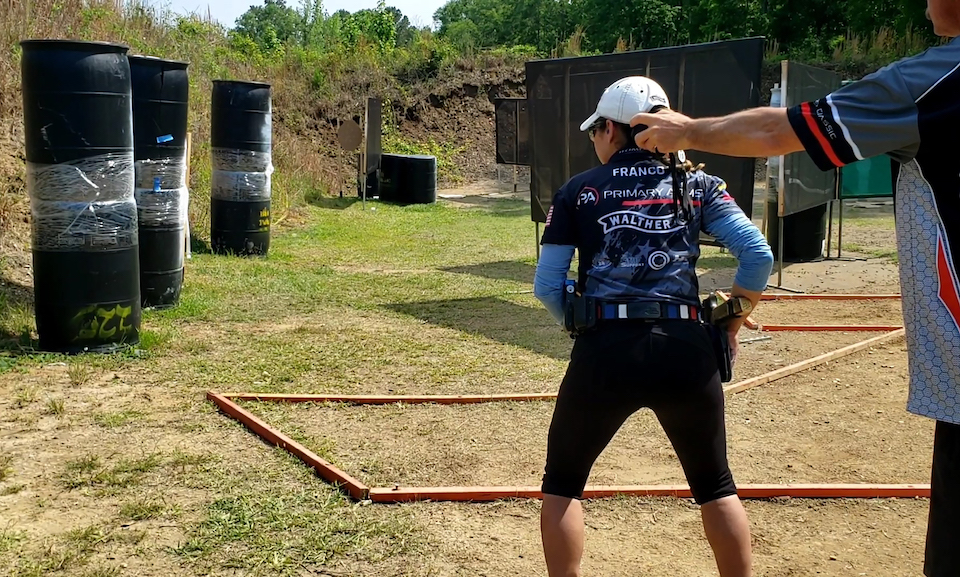
However, while beneficial, such an attitude change is not easy to achieve on the spot. For instance, I have felt sad and disappointed immediately after shooting poorly at a match. I give myself a few minutes (five minutes or less) to “grieve”; I know that word is too strong, but I think my emotions about things I care about are strong, too. I think about the situation as a learning experience. I ask myself important questions like, “What did I learn? How can I avoid that from happening again?” Then, I give myself an imaginary pat on my back and tell myself, “Now, you know what you need to do, avoid, and practice!”
I would probably have been diagnosed with ADHD if I had been born and raised in the U.S. My Olympic shooting coach used to tell me, “You would be much better if you were more focused.” So, I might or might not be the right person to answer this question. I would say that I am most focused when I have a detailed training plan, minute-to-minute to make sure I do not get distracted. I avoid listening to music (that would be a topic for another post), watching TV, or listening to a podcast. I know this might sound boring for many, but our brains can only focus on one thing at a time. Thus, this is essential to not be distracted when learning a technique or perfecting one. In that way, I can focus not only on the technique itself, but also on my muscles, feelings, thoughts, mistakes and improvements.
I believe mindset and attitude in general comes from life experiences. My mindset at the age of 24, when I first started to carry my firearms, was not the same as today. I was always told I’m “too nice.” I had the attitude of, “I doubt that I would ever have to use it so I’m not going to carry it on me, but I will carry it in the console of my vehicle when I’m traveling.”
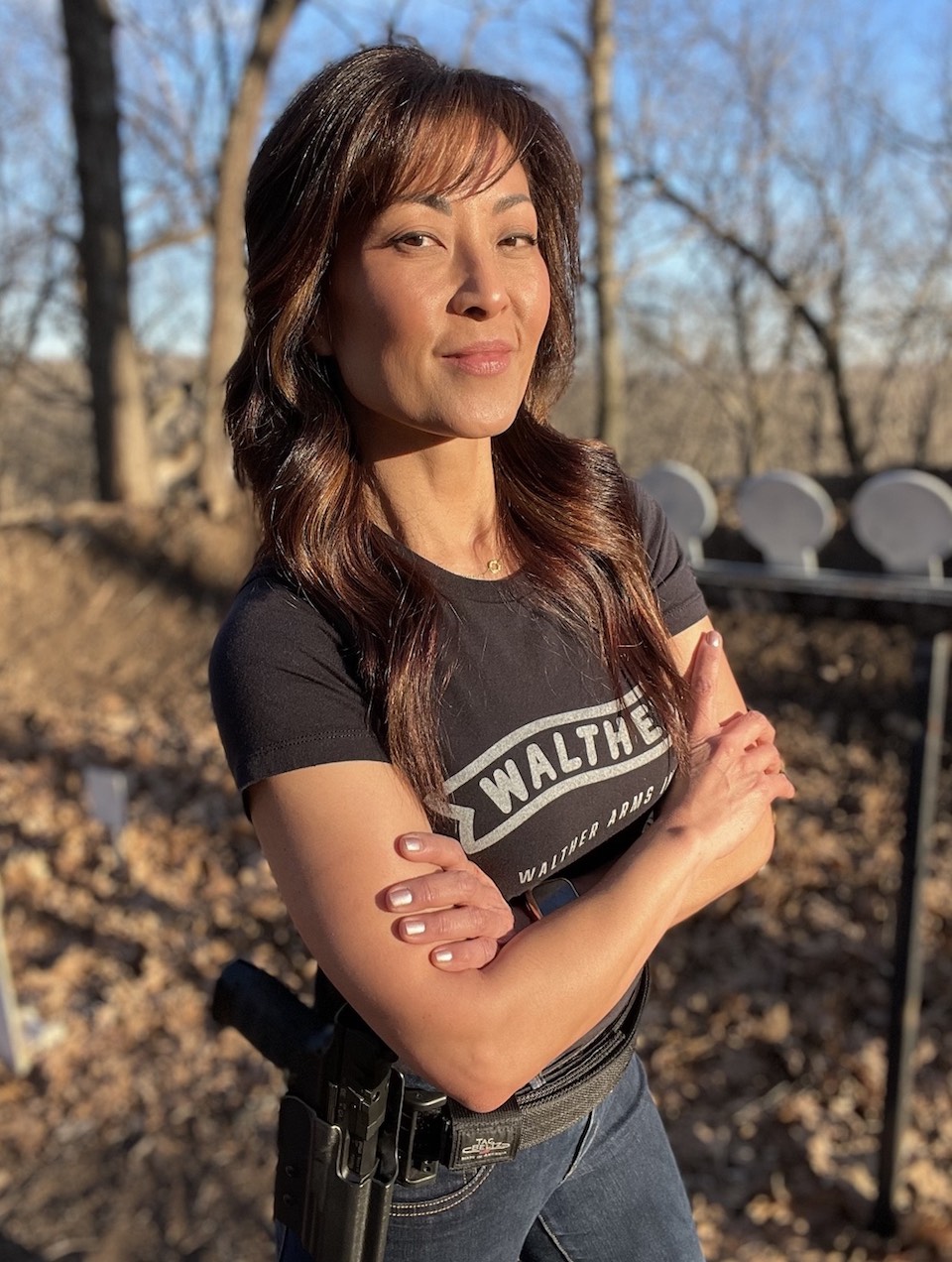
The day came when I had to draw my gun from the console of my vehicle to a man who was approaching my vehicle with a knife inside his waistband. Thank goodness the man backed off and walked away. Needless to say my attitude changed that day. It changed from being too nice to being cautious towards strangers.
Attitude also helps with your mindset, preparing your mind for the worst-case scenario.
When it comes to focusing on training and shooting, I try to take a concealment training course at least once a year. There is always something to learn and add to your knowledge. I try to focus on the draw from my outfit of the day or concealment purse each morning when I’m getting dressed. It’s part of my routine and it only takes five minutes.
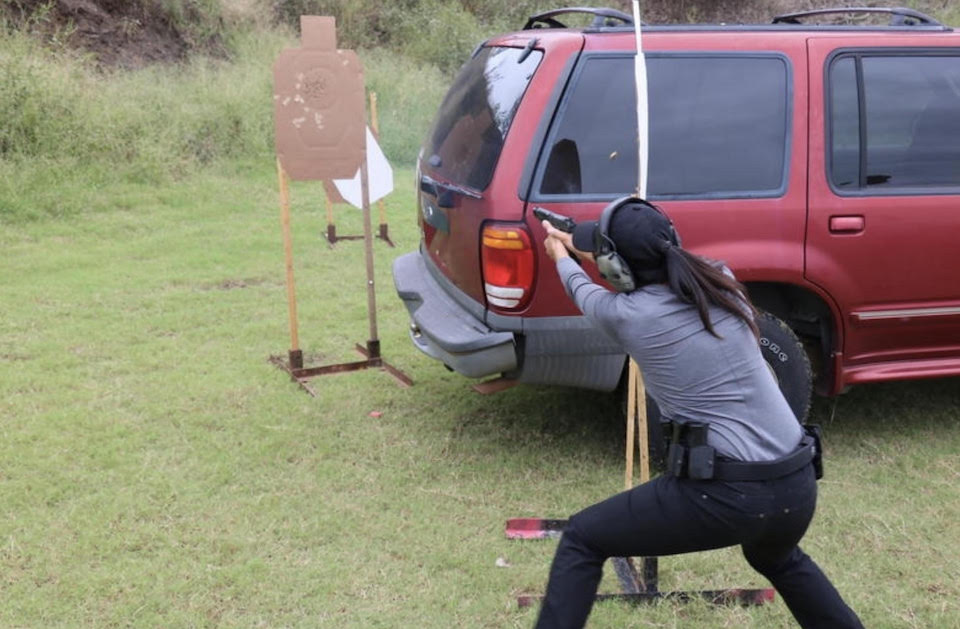
A few weeks out from a major competition, I try to work on breaking down the basics each time I practice: Starting from the beginning, such as a solid draw out of the holster one day, then getting to the ready position from the holster draw another day, and then building up to the sight picture only on another day. Once all the movements are down, I start the target transition. By the week of the match, I incorporate all the movements into one practice session.
As we can see, each of these women approach mindset, attitude and focus from a different angle, but all with the goal of constant self-reflection and improvement. These are simple techniques that all of us can incorporate into our own daily practice.
Find out more about Gabby Franco at https://waltherarms.com/walther-team/ and also at
https://gabbyfranco.com/ as well as on Instagram and Twitter.
Find out more about Tatiana Whitlock at TatianaWhitlock.com, on Facebook, Instagram, and LinkedIn.
Find out more about Michelle Waldron at https://waltherarms.com/walther-team/ and also on Facebook and Instagram.
Nancy Keaton is the Facilitator for the Waco Chapter of A Girl and A Gun Women’s Shooting League. She formerly shot in IDPA, ASI and 3 Gun matches, was the president of Centralia Rifle Club in Centralia, WA, and is a retired college administrator. Her work has appeared in multiple publications and online. Check them out on her website and on Muckrack. View all posts by Nancy Keaton